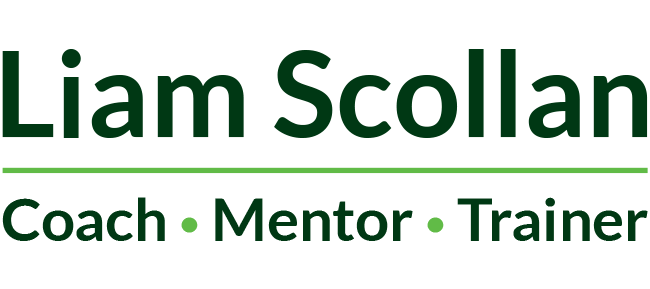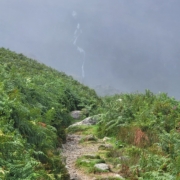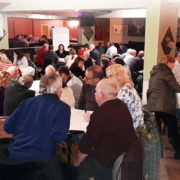The big questions
At a time when governments simply haven’t the answers to rural decline then how can communities step into the breach and find solutions?
At a time when institutions have lost the trust of most people how can communities become places where there is trust and co-operation?
At a time when many political and business leaders fall short of our expectations how can we turn to our own communities and nurture another type of leadership?
Can communities become places that spark an altogether new progressive vision for rural Ireland and ultimately for Ireland itself?
So how do we get our communities to become incredibly good teams?
The solutions I am proposing do not in the first instance rely on government. They simply depend on us. Solutions are realised by people working terrifically well together.
A small independent open minded group
Form a small group that will work well and openly together. A group as small as three or four people will even do. The main criteria for membership of this group is that you are able to leave all your own pet ideas behind you so that you are going to be open to whatever answers that will be presented by others in your community. This means having at least one person in your group who is really good at facilitating others to come up with ideas and to help them work through solutions in an open, equal and democratic way. The next step is to engage the entire community in an exercise of open questioning and looking for creative answers.
Facilitation
Facilitation is a really important skill, that ability to let others open up and speak out rather than be the dominant voice yourself, to be able to engage all participants and to let everyone in the room have their say without letting any one voice be too dominant. There is a real art to good facilitation and it is worth applying it at community level. I will return to this again.
A hugely well attended public meeting
Get as many people as possible from all parts of your community to attend. Make sure that in the lead up you let everyone know that all interests and all age groups will find that their issues will be addressed. In a small community of 500 population you can aim for about 70 attendees.
Powerful questions, fearless answers, fresh vision
On the evening of your first public meeting, with hopefully lots of attendees, here are key questions to ask in order to get a community of people to aim high and long.
- What will success look like in 5 years in your community?
- What will failure look like in your community in 5 years?
- Describe the people you would most like to see benefiting from the success
At this stage you are not asking people for a list of projects. You are not asking people to state what is wrong with life, with the community, with government etc. You are simply asking people to look fearlessly to the future of the place they call home.
It is essential that as many people as possible in a room are enabled to provide the answers to these questions. You do this by breaking up into small groups of 5 or 6, having plenty of round tables for each group to work at, selecting strong chairpersons in each group that insist that everyone gets a chance to speak and insisting on clear rules agreed at the outset. For instance if one person at a table is doing all the talking then they must be prepared to be told to stop and let other people have an equal chance. Foster a culture of openness where no suggestion is belittled and every suggestion is encouraged. Have a good note taker that writes everything on a flip chart in large writing, big enough for people to see from distance.
Call time after half an hour, or give more time if the conversations are going well. There may be people who resist or can be unhappy with such an open exercise. Very often these are people who just have a habit of dominating discussions, have pet projects of their own or simply enjoy the pleasure of being heard by lots of admiring people!
Now ask a person from each group, usually the note taker, to bring their paper to the front of the hall and speak to it. As each group presents the time needed will become shorter as there will be repetition of points.
When everyone has presented you have actually just heard an entire community describe its vision of its own future. It is really only the beginning of the process. However, you have now taken a giant step.
A vision that is understood by the whole community
Now let everyone take a break, have tea and coffee drinks/snacks, a smoke, catch up with each other. Plan enjoyment and conviviality into your sessions. However, your small group, won’t be taking a break. You will need to summarise the vision into something the entire room can understand. It may have different strands or themes to do with e.g. population, jobs, facilities, infrastructure and so on… Try to capture the vision so that there is a clear sense in the room of what the community is aiming at.
Visions can and should be very ambitious. A great vision is by definition something that you may never be able to achieve but you will spend your whole life trying to achieve it because it is worth aiming at. Communities need that sense of vision. A community with a great collective vision has found a well, an inspiration, a purpose for huge endeavour. Answering the ultimate question: what is our vision will later on, become a powerful binding force for all the activities that will follow.
Your community has had its first meeting. After a few days your small, core, group will send a summary of the vision to everyone, making sure that even those without email get copies.
You are now ready for the next step.



